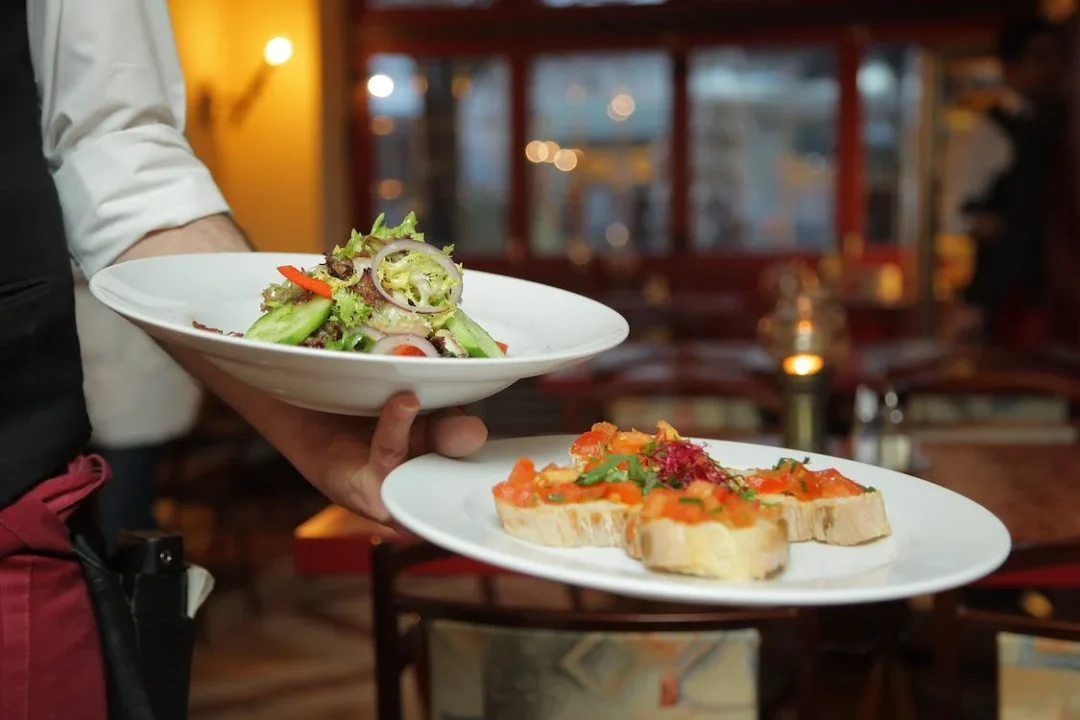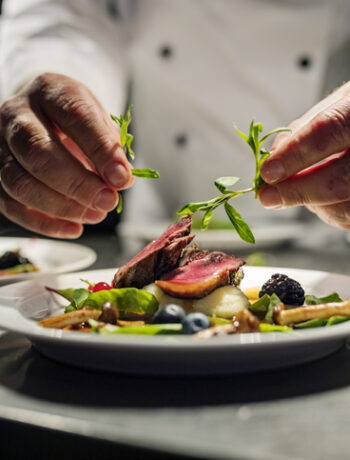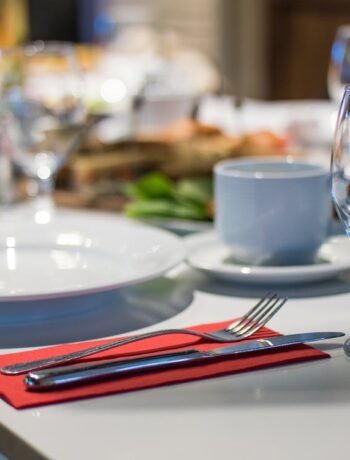Food is the essence of your sustenance and a universal need that uniquely powers us. When hunger strikes, we instinctively seek quality food that satiates our cravings and tantalizes our taste buds. That’s why you find various restaurants, food trucks, catering services, coffee shops, and confectioneries at every street corner as you move around any city or town.
The food industry is among the fastest-growing and most sustainable industries. Although the COVID-19 lockdowns caused a severe blow to dine-out restaurants, customers are back with a stronger desire for fine dining after the restrictions have been completely lifted. Considering the high growth rate of the food business, with a CAGR of 10.76%, as per the research by Fortune Business Insights, it’s a perfect time to make your way into the food industry. If you plan to start a food business, you’ve undoubtedly made a wise choice.
However, venturing into the food industry requires more than just a basic understanding of the potential location, menu, and business hours. Before starting a food business, continue reading to discover a few important things you should consider.
Buy Quality Kitchen Equipment
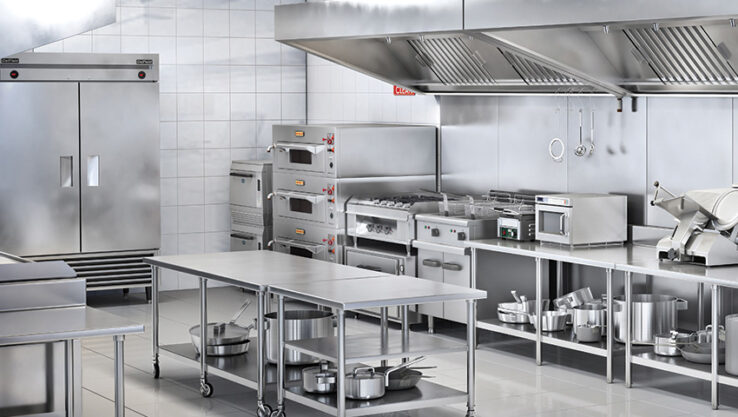
Source: hubert.com
The restaurant equipment cost is one of the highest costs you pay when starting your food business. The success of your business hinges on how wisely you spend your limited capital. Although it may be tempting to prioritize the most cost-effective options, you must consider the long-term implications. If you choose subpar kitchen equipment only to save money initially, you may have to deal with frequent replacements and additional maintenance expenses, which adds to your overall cost over time. Therefore, you must invest in high-quality equipment for your restaurant.
When buying restaurant equipment, you must consider the following aspects:
- Check whether the equipment is built to endure the rigorous demands of your kitchen and doesn’t require frequent replacement or repair.
- Ensure the equipment is engineered to deliver optimal performance even during extreme temperatures and heavy workloads.
- Ensure your kitchen equipment is designed according to food safety regulations and prevents cross-contamination.
- Check whether the vendor offers warranty or maintenance services.
Many popular kitchen equipment suppliers provide a range of high-quality kitchen equipment, including cooking appliances, refrigeration units, ice machines, prep tables, storage solutions, and more. They are known for their reliability, durability, and quality of equipment.
Develop a Distinctive Concept for Your Food Business
In the food business, taste and variation in our menu is undeniably the most important factor that drives success. However, serving delicious cuisine might not be enough to take your business to new heights. Imagine a scenario where every restaurant offers the same menu within a vicinity and has to compete for customer attention. This is where a unique idea can set you apart from your competitors.
To run a successful food business, you need to think beyond the conventional and create a distinctive concept that provides a unique dining experience to your customers. Create a concept that makes your business both unique and original. It could be anything – from a unique brand identity to a distinct restaurant theme, services, cuisine style, ambiance, or cutlery.
Plan Out Everything

Plan
A unique business concept serves as a foundation for your food business, but to convert your idea into a lucrative business, you must have a strong and comprehensive business plan that supports this unique concept. When planning your food business, you must consider the following factors:
- A unique business name, logo, theme colors, and overall aesthetics.
- Your business entity type – consider whether you want your business to be a sole proprietorship, partnership, or limited liability company (LLC).
- The type of food business – consider whether it’s a full-service restaurant, a quick-service food shop, a bar, or a food truck.
- Identify your target market and determine which group of customers will be most attracted to your business.
- Create a comprehensive initial budget and plan out your upfront investments.
- Create a comprehensive menu based on your business concept and estimate the prices based on costs and perceived profits.
- Plan out your staffing requirements and the minimum number of employees you need to kickstart your business.
- Plan a complete kitchen and dining hall layout. It should also include the number of tables and chairs you need and the number of signature dishes and cutlery.
- Consider which health and safety regulations apply to your food business, and make sure you comply with all these regulations.
- Get licensing and permits for your food business, including business licenses, food service licenses, liquor permits, seller permits, music and entertainment permits, and zoning permits.
Your Kitchen Layout Matters
Your kitchen layout and placement of each kitchen element determine how efficiently your staff can work and how well they can cater to a larger customer influx. Once you have listed all the kitchen equipment you need, it’s time to create a comprehensive kitchen layout.
When designing your kitchen layout, determine whether your kitchen’s size aligns with your needs. Plan your layout so you can easily prepare food without disrupting kitchen operations.
Keep sufficient room for washing and storing kitchen equipment and cutleries, and dedicate space for plating your food. Most importantly, ensure your clean and dirty dishes, food, and equipment have separate counters, as it is essential to meet the food and health safety regulations.
Location Means Business
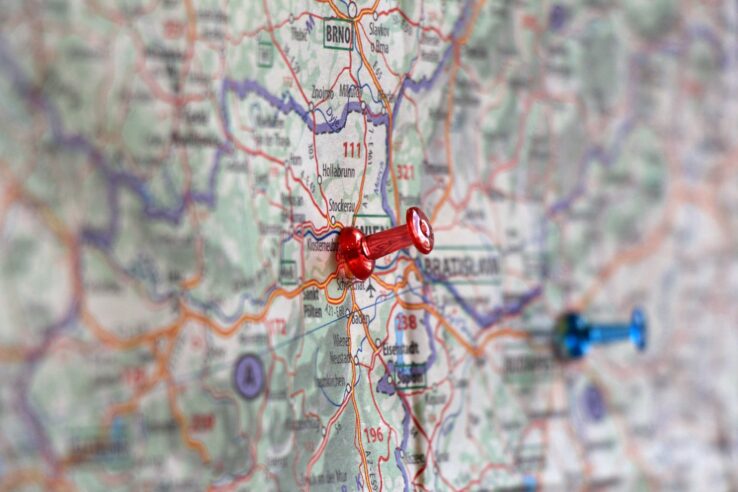
Source: morebusiness.com
The location of your food business holds paramount importance and determines the success or failure of your business. Finding the perfect location may be challenging as sometimes the most unexpected spots are a major success.
While your business concept influences your chosen location, you should also consider your shop’s visibility to potential customers. For this purpose, you must comprehensively understand your target markets and competition.
When identifying your target markets, consider customer preferences, dining habits, popular food types, and demographics or cultural backgrounds. Look for potential gaps your food business can fill to cater to your customers’ needs and demands. Moreover, you should consider a busy location with shops and markets in the surrounding areas. The busier your surroundings are, the higher your chances of converting passersby into customers.
Wrapping Up
Starting a food business is more than planning your menu and choosing a location. It requires meticulous planning, a unique idea, and a lot of creativity. Apart from the key considerations mentioned above, you should ensure you partner with the most reliable food suppliers in the market. Remember to regularly reconsider your business plan and policies to make consistent improvements and strive for the best. Good luck with your venture!

